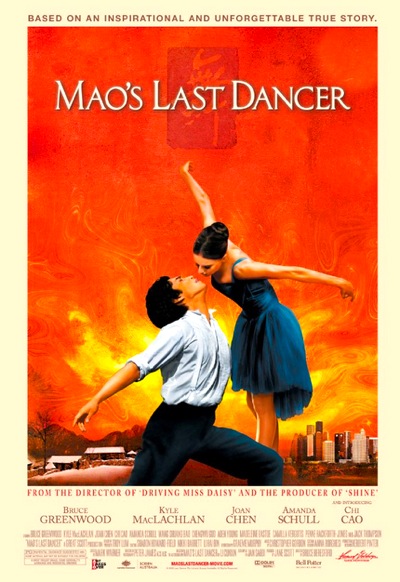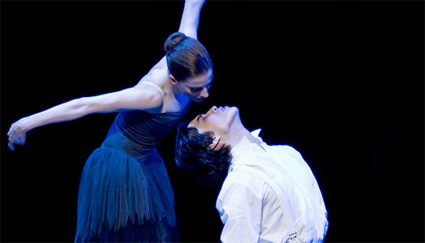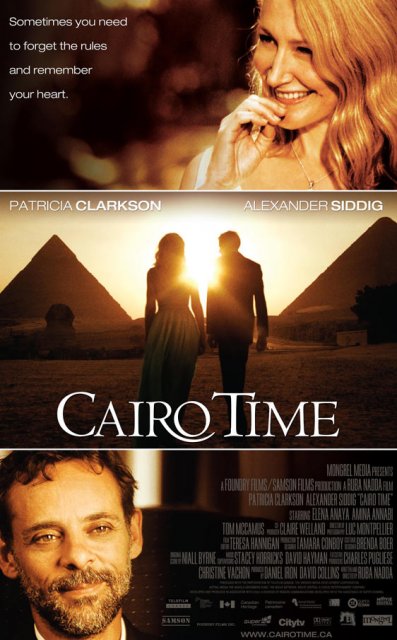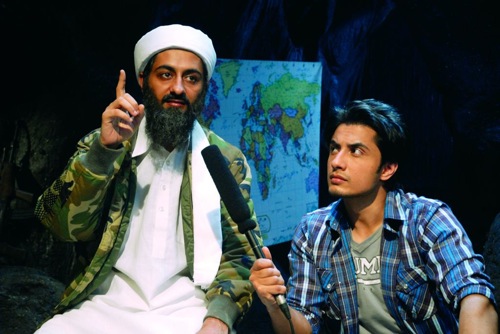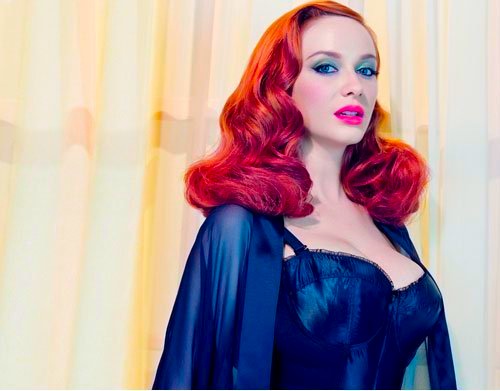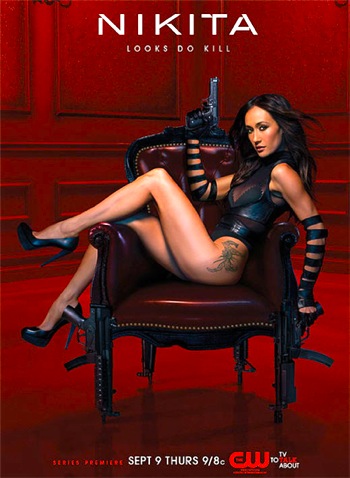
By Jason Apuzzo. We reported recently here at Libertas about how the CW’s reboot of the Nikita franchise will be making the CIA the villains of the piece. So far as we’re aware, we’re the only site currently making a fuss over this.
Variety (registration required) is now reporting today that the show is currently turning heads for a different reason – namely, the raciness of it’s advertising.
At Libertas, of course, we dive right in to such controversies.
As I mentioned in my earlier post about this show, what alerted me to this show to begin with was a gigantic, eye-popping billboard of star Maggie Q slapped up against a building here in LA. The poster was the already quite racy one of her in a red dress (see here). Now, apparently, the people at CW are trying to get huge billboards of Maggie Q in leather and tattoos (see left) into major markets like New York, Chicago and Los Angeles – and even here in LA not everybody’s going along with it.
Let me begin by stating the obvious: it would be spectacularly hypocritical of me to complain about the sexiness of this show’s advertising, given our regular featuring of pin-ups here at Libertas. On the contrary: we love this sort of thing, as it speaks to the sort of freedoms we enjoy here in the West that are routinely frowned upon in totalitarian societies (both of the Islamo-fascist and communist variety) elsewhere in the world.
Plus, the girls look cute – which should be reason enough.
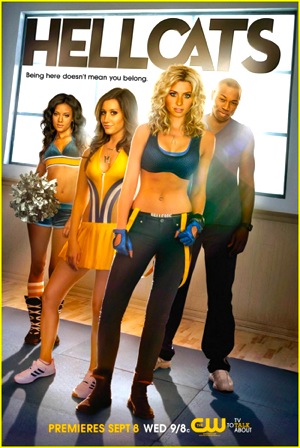
With that said, even I think that putting up 50ft. billboards of Ms. Q in leather and tattoos in public places like malls, where families and children may gather, is probably a bit much. And for safety reasons, I don’t think it’s too good of an idea to put these billboards near freeways. The one of her in the red dress (see here) is more than enough to get the point across.
What bothers me more is that this new show apparently goes The Full Stallone in taking a nasty swipe at the CIA. Why aren’t people more bothered by this? Let me put it this way: why are we so prudish about the sex component to this series, yet so completely untroubled by what the show is depicting in terms of our own government?
Attacking our intelligence services is such a terrible idea at this point in time, as those services struggle under the combined weight of low morale, rampant anti-Americanism overseas and budget cutbacks. And here’s another problem: shows like this do, eventually, get syndicated in foreign markets … and what kind of effect do you think they have, particularly among those already inclined toward hating America? [Foreign distribution rights to Nikita have already been sold to the UK and Australia.]
Much as with The Expendables, I really wanted to like this show. It had the potential of being a kind of sexed-up version of 24 – or a weekly Salt, if you will – and in fact that’s what the show should have been. Instead, they had to make America’s intelligence services into the enemy, into ruthless murderers bent on assassination. What a shame.
The only silver lining here, I suppose, is that the CW is giving us a better-looking show this fall called Hellcats. The show is apparently based on the book, Cheer: Inside the Secret World of College Cheerleaders. I’ve put the trailer for the show below. This cheeky comedy-drama’s premise is described this way:
Hellcats revolves around Marti, a pre-law college student from the wrong side of the tracks. When budget cutbacks and her mother’s constant carelessness cause her to lose her scholarship, she joins the Hellcats, the college’s competitive cheerleading team.
Perfect! A series about a young gal forced into a life of cheerleading due to tragic circumstances. [Is Roger Corman running this network?] Between the new terrorist-fighting Hawaii Five-O and this, I think we’re set now.
Posted on August 19th, 2010 at 11:33am.
